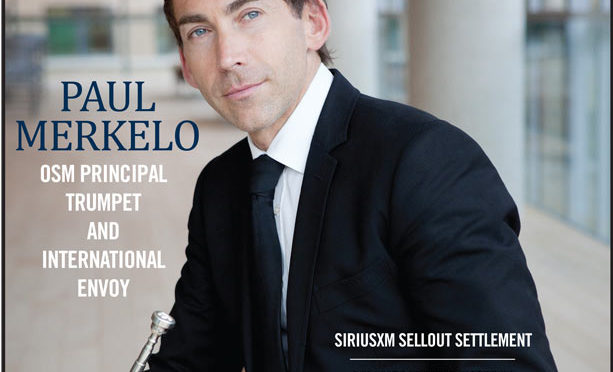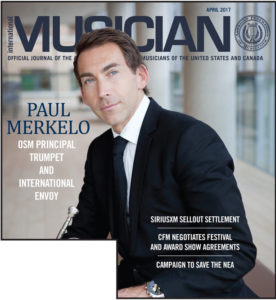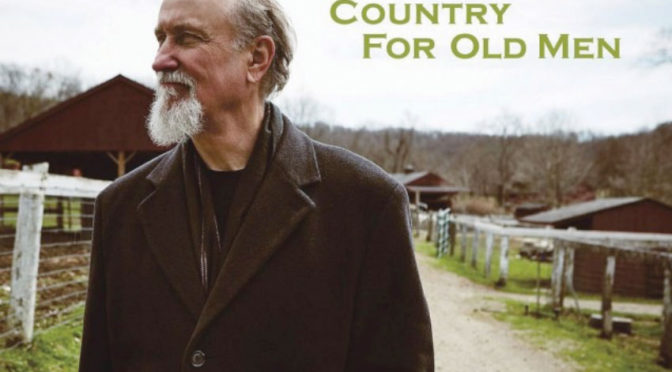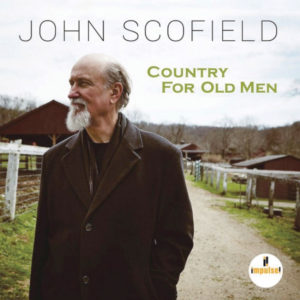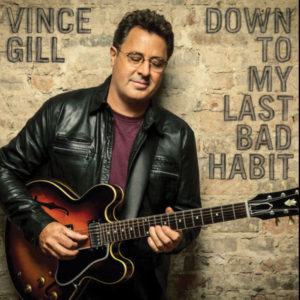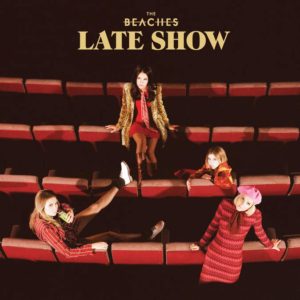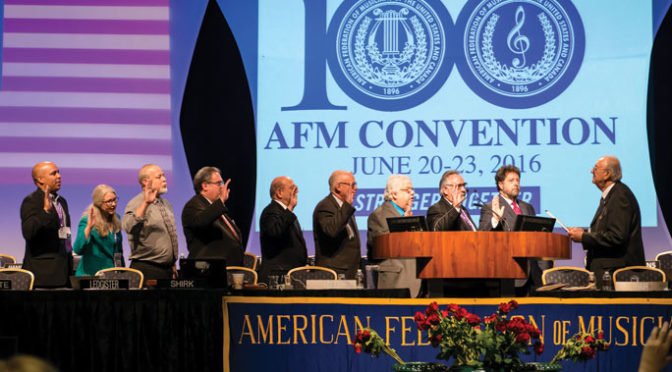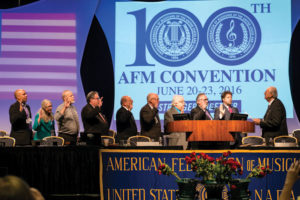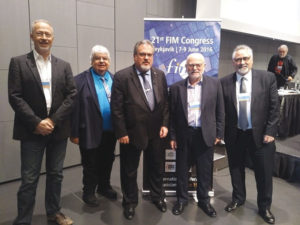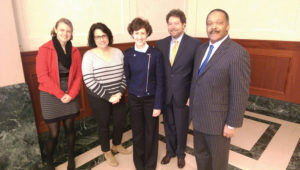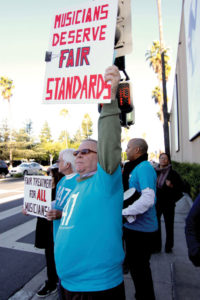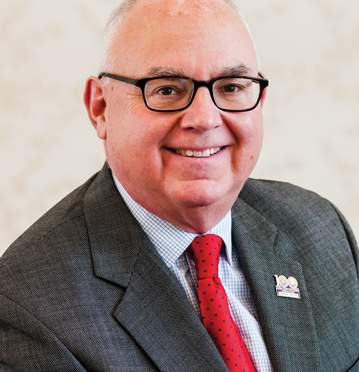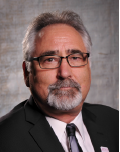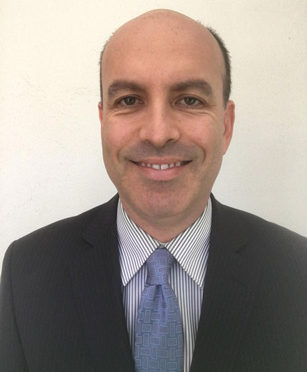 The first time then-teenagers Katie Larson and Savannah Buist, both members of Local 56 (Grand Rapids, MI) jammed together in 2011 they knew they had something special. The next five years were a blur of learning, creativity, and performing. They’ve graduated with the inaugural singer-songwriter major at Interlochen Arts Academy high school, produced three albums, and toured the country.
The first time then-teenagers Katie Larson and Savannah Buist, both members of Local 56 (Grand Rapids, MI) jammed together in 2011 they knew they had something special. The next five years were a blur of learning, creativity, and performing. They’ve graduated with the inaugural singer-songwriter major at Interlochen Arts Academy high school, produced three albums, and toured the country.
“Neither of us had any idea that we would be getting into music professionally,” says Larson. The cellist met Buist, a violinist, when they both volunteered for Alternative Styles for Strings Club at their Traverse City, Michigan, public high school.
What made the connection magic was how they immediately fed off each other’s strengths and weaknesses. Larson came from a classical background. “I was very uncomfortable improvising and doing anything like that. Savannah was playing in her family’s folk band, singing harmonies, and doing solos,” says Larson.
Buist picks up the story, “I had only played violin until I met Katie and realized she was a multi-instrumentalist and a songwriter. I hadn’t really tried those things. She came over to my house to rehearse for this homework assignment, and instead of rehearsing classical music for our orchestra program, we ended up playing the White Stripes. We were pretty much a band from that night.”
The Accidentals captures all of their many influences. “We kind of open up a discussion of genre whenever we talk about our band,” says Larson. “Music is going to a more genre-less platform. We incorporate elements of classical, folk, pop, jazz, rock, and gypsy jazz, along with singer-songwriter. We usually classify ourselves as indy folk rock, but we are just a couple of musical geeks who play a lot of instruments and as many styles as we can.”
The music is infectious and upbeat, and has earned them plenty of early recognition: Billboard’s Top Seven Breakout Artists SXSW 2015; Winner of Summerfest WI, Emerging Artists Series US Cellular Stage 2015; VinylMag.com’s Top Ten Artists to Watch at SXSW 2016; Huffington Post’s Sweet Sixteen Bands of 2016; and Yahoo Music Top Ten Bands to Watch 2017.
“The first time we went to SXSW was in 2015 and when we got home my phone blew up!” says Buist. “We made Billboard Magazine as one of the top seven breakout bands. I didn’t believe it; I thought a friend of mine had Photoshopped our names. It was kind of a mind-blowing experience to have somebody actually see us play a show and walk away thinking we had something.”
“There are so many bands invited down there and so much oversaturation of music. We were afraid we wouldn’t get any recognition,” she says. “We feel so unbelievably lucky that people are excited about what we are doing.”
Since launching their career, The Accidentals have had a crash course in the music business. “We are trying to run everything from the road and a lot of things fall through at the last minute, turning us into professional troubleshooters finding a way to make things work,” says Larson.
 One of the things The Accidentals did get right was joining the AFM early in their career. “We joined the AFM when we entered into our first recording deal. It was 2013 and we were still teenagers at the time. We really appreciated joining because it showed us what kind of rights we had as musicians. We feel extremely supported by the people in the AFM,” says Larson. “It did really make us feel empowered. I think all musicians appreciate that.”
One of the things The Accidentals did get right was joining the AFM early in their career. “We joined the AFM when we entered into our first recording deal. It was 2013 and we were still teenagers at the time. We really appreciated joining because it showed us what kind of rights we had as musicians. We feel extremely supported by the people in the AFM,” says Larson. “It did really make us feel empowered. I think all musicians appreciate that.”
The Accidentals officially moved from duo to trio after about two years, adding multi-instrumentalist Michael Dause of Local 5 (Detroit, MI) to the band in 2014. They discovered the freedom of having a full-time rhythm section by accident at northern Michigan’s Blissfest in 2012 when a friend hopped up on stage and began drumming along.
“It blew our minds,” says Buist. “One of us had always covered the rhythm instrument; when we had a drummer it opened up a huge world of opportunity for Katie and I to start improvising. We met Michael at Blissfest about a year later. He was playing a solo set [on guitar] and when we found out he was also a drummer we asked if he’d like to audition with us.”
Dause’s first gig with the band was on vehicle-free Makinac Island, so he couldn’t bring a drum kit. “He brought just a little cajon with him and we played the set together. He knew all of the songs because he’d been a fan of the band. It was really a perfect fit and Michael has been with us ever since,” says Buist.
The Accidentals have been busy over the past few months putting finishing touches on their new album, Odyssey, scheduled for release in August. It will include 12 original songs and possibly a bonus track. The first single, “KW,” was released in March at SXSW 2017.
The album’s theme is about moving beyond their fears. “We are going to take 2017 as the year of no fear … not the absence of fear, but in spite of it. It’s really powerful to acknowledge where you are vulnerable and keep moving into the new year despite fear and vulnerability. Every song details a specific problem that we see and a way we come together to solve it—a journey of sorts,” says Larson. “The message manifested itself after we had written and recorded the songs.”
Both Larson and Buist consider themselves to be “introverted” songwriters and each writes songs independently. “Songwriting is kind of an intimate process for us,” says Larson. “We write the chord progressions, have the song worked out, take it to the group, and generally the three of us will work up an arrangement for how we conquer the song live.”
Only about one song per release is written together, explains Buist. Each tackles the songwriting process differently, again feeding off each other’s strengths. Buist is much stronger on writing lyrics, while Larson’s focus is more on melody.
After graduating from Interlochen Arts Academy, Larson and Buist weighed their options. Larson was offered a Presidential Scholarship to attend Berklee College of Music, but when a production deal was offered at the same time, they chose the latter.
“College will always be there for us on the back burner,” says Buist, though she says she wouldn’t necessarily study music. “We are running our business and it has been really interesting learning from the real life application of that. I might go for something that I haven’t tried before if I were going to go to school.”
“I totally agree,” says Larson. “I think the great thing about choosing to tour right after high school is that, when I was in high school, I wasn’t exactly sure what direction I wanted to take. I was also very shy. Being thrown in all these situations helped me break out of my shell and realize all of these new interests I may want to pursue later.”
For the past few years, The Accidentals have been on tour pretty much non-stop, and so far, aside from missing their families, they love the experience.
“Savannah and I are overachievers. We are amazed when we overcome challenges and the road is full of constant crises so there is always something fun to learn,” says Larson.
“All three of us are looking forward to having the new album out just because of the personal achievement. We’ve had an exciting two or three years since we graduated high school and we’ve really learned a lot about the industry,” says Larson.
“A lot can happen in the future and so we are just trying to balance it all,” says Buist. “We’ve got a lot of people who care about us and are helping us get through it one step at time. I think we’ve learned to ask for what we need, and to remember, in the grand scale of the universe this is just a tiny spec. We’ve learned to put our problems into perspective, understand how lucky we are, and keep moving forward.”
“We try to keep short-term and long-term goals for ourselves and the band,” says Larson. “We are on a wild ride and every once in a while it’s nice to have little things to check off your bucket list.”






